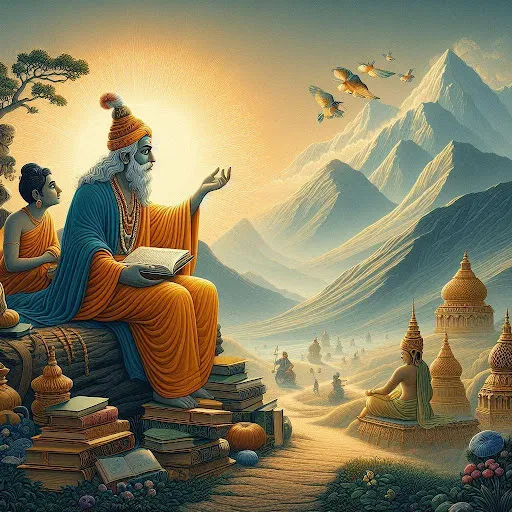Swapnil Bisht
Law, Creativity & Wisdom | Adv. Swapnil Bisht | Weber | Digital Creator • Blogger • YouTuber | India
The Guru's Gift: A Lifelong Journey of Learning - Happy Teacher's Day!
🌞 Warm Welcome! 🤗
▶️ MY YOUTUBE FEED!🚀✨
 Explore the Realms of Creativity and Knowledge!
Explore the Realms of Creativity and Knowledge!
Join us now on YouTube @advswapnilbisht and be part of our inspiring journey.
Explore the Channel – Click Here!🚀 Visit My Landing Page! 🏠
📢 Legal Alert!🚨
⚠️ Important: Prior to browsing this blog/website, please review the Disclaimer (Menu > Disclaimer) or access it via the Pages Menu Footer Widget link.🔗
📺 YouTube ▶️
Stay Inspired with Adv. Swapnil Bisht
Subscribe to My YouTube Channel! Click Here!I'm here to make a difference!⚡
✨ Welcome to my digital realm. I am Adv. Swapnil Bisht- Weber from India, and I’m delighted to see you here! 🌿
𝔻𝕚𝕘𝕚𝕥𝕒𝕝 ℂ𝕝𝕠𝕔𝕜 ⏰
𝔻𝕒𝕥𝕖 📅
𝕋𝕠𝕕𝕒𝕪 is:
Popular Posts

Beyond Demography: India’s Missing Girls as a Crisis of Constitutional Morality!

Short Story: Real Childhood Memory – The Girl Who Died Too Young but Painted Eternity!

Inside India’s Underworld: The Nexus of Crime, Law, and Justice.

Breaking the Chains of OCD: Understanding Obsessive Thoughts and Compulsive Rituals

Devbhoomi Diaries: Nainital and Uttarakhand Through the Eyes of Adv. Swapnil Bisht.

Placebo vs Nocebo: The Hidden Power of the Mind in Medicine

BRASS: A Quiet Educational Brotherhood of Nainital!

Story:The Convent on the Edge:The Nako Enigma:Part 4-The true confession.

The Guru's Gift: A Lifelong Journey of Learning - Happy Teacher's Day!
Wikipedia
Adv.Swapnil Bisht- Weber (Blog-2)
Interesting Legal Facts- India!
1. Adultery is No Longer a Crime: In 2018, the Supreme Court of India decriminalized adultery by striking down Section 497 of the Indian Penal Code (IPC), though it can still be used as grounds for divorce.
2. No Right to Die: Until 2018, attempting suicide was a punishable offense under Section 309 of the IPC. However, the Mental Healthcare Act, 2017, decriminalized suicide attempts, acknowledging mental health conditions.
3. Uniform Age of Consent: In India, the legal age of consent for sexual intercourse is 18, irrespective of gender, as per the Protection of Children from Sexual Offenses (POCSO) Act.
4. Secular Personal Laws: Despite India being a secular state, different religious communities in India follow their personal laws for matters like marriage, divorce, and inheritance, such as Hindu law, Muslim law, and Christian law.
5. Freedom of Speech with Reasonable Restrictions: While the Indian Constitution grants freedom of speech and expression, it also imposes reasonable restrictions for matters such as national security, public order, and decency (Article 19(2)).
6. No Jury Trials: India abolished the jury system in 1960 after the controversial Nanavati case, where a naval officer was tried for killing his wife’s lover. Now, cases are decided by judges.
7. Live-in Relationships are Legal: The Supreme Court of India recognizes live-in relationships as valid, provided certain conditions like mutual consent and legal age are met. They also grant protection against domestic violence.
8. RTI Act (2005): The Right to Information (RTI) Act allows Indian citizens to request information from any public authority, making government actions more transparent.
9. Triple Talaq is Illegal: In 2019, India outlawed the practice of instant triple talaq (talaq-e-biddat), which allowed Muslim men to instantly divorce their wives. It was declared unconstitutional and is now punishable by law.
10. Right to Education: Under Article 21A, the Right to Education Act makes free and compulsory education a fundamental right for children between the ages of 6 and 14, ensuring access to primary education.
Send your Query
Send your query to:
Contact me at: advswapnilbisht@gmail.com
Guest Invite!
Are you a passionate writer with a knack for inspiring others? We're seeking talented guest authors to contribute insightful and engaging articles to our blog/website.
Share your expertise on a wide range of topics that foster knowledge and creativity. Whether you're a seasoned writer or just starting out, your unique perspective is valuable to our community. Together, let's ignite curiosity and spark inspiration.
Submit your guest post proposal today!
For details on topics, submission guidelines, and word count, reach out to us at advswapnilbisht@gmail.com or just WhatsApp your request.
We look forward to hearing from you!
Notice/Updates
Spotlight Posts
📈 Website hit counter ⬆️
🔍 Search This Website(Blog)
Blog Archive
-
▼
2024
(54)
-
▼
September
(18)
- From Silver Screens to Streaming Dreams: The Cinem...
- Unplug to Reclaim: The Power of Digital Detox in a...
- Balancing Heritage and Progress: India’s Judiciary...
- Cybercrime in India: Navigating the Digital Battle...
- Safe Yet Vulnerable: How Cybercriminals Bypass Sea...
- The Digital Blackout: Imagining an India Without U...
- India’s Best-Kept Secrets: Celebrating Rare and Un...
- From Stigma to Support: Navigating India’s Mental ...
- The OTT Wave: Transforming India’s Entertainment L...
- World Suicide Prevention Day: A Global Call for Co...
- Short Story: From Darkness to Light - A Story of S...
- The Science of the Unknown: An Insight into Paraps...
- The Dark Side of Social Media: Addressing the Thre...
- Ikigai Explained: Discover the Japanese Secret to ...
- The Guru's Gift: A Lifelong Journey of Learning - ...
- Short story:Love's Bitter Sweet Echo.
- A Double-Edged Sword: The Challenges and Controver...
- From Legal Terrorism to Balanced Justice: The Shif...
-
▼
September
(18)
ℕ𝔼𝕎𝕊 𝔹𝕐𝕋𝔼 📰
As a counsel to Acharya Bal Krishna, Patanjali Yogpeeth, Baba Ramdev's Associate - Down Memory Lane.
My Life💓
Explore the Realm!

(𝕯𝕀𝔾𝕀𝕋𝔸𝕃 𝕍𝕀𝕊𝕀𝕋𝕀ℕ𝔾 ℂ𝔸ℝ𝔻)👇

You may download it for quick reference!
Your legal ally

I am Swapnil

Web Logo/Favicon

Adv.Swapnil Bisht-Weber!

"सभी मेरे आगंतुकों का स्वागत है!"
🌍 Ease of Translation! 🌐
"सभी मेरे आगंतुकों का स्वागत है! जिन्हें अंग्रेजी समझने में कठिनाई हो रही है, वे आसानी से मेरी सारी सामग्री को हिंदी में अनुवाद कर सकते हैं। वेबसाइट पर अनुवाद के लिए उपलब्ध अनुवाद फीचर का उपयोग करें।"
"Struggling with English? Our website offers a translation feature to help you read it in your preferred language. Simply use the translation option provided on the site to access content in your native tongue.Just make use of the translation feature below! 👇"
Translate/अनुवाद
✨ We’d love to have you back! 🌈
Pages-Menu Footer Widget
✨Adv. Swapnil Bisht: The Voice of Advocacy, Unveiling Knowledge, Empowering Justice, and Spreading Positivity Across the Digital World. 🌈




0 Comments